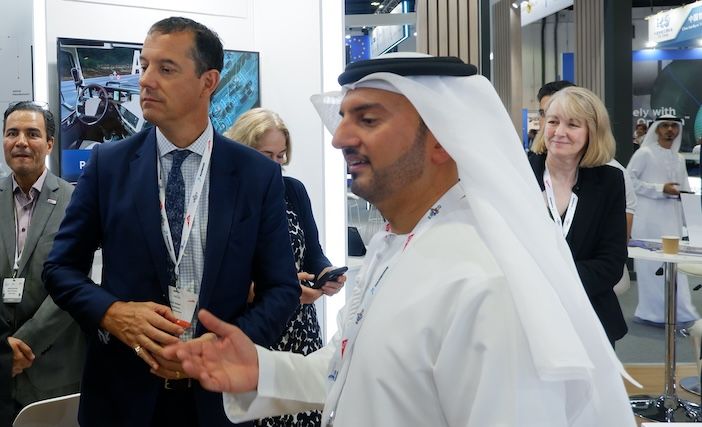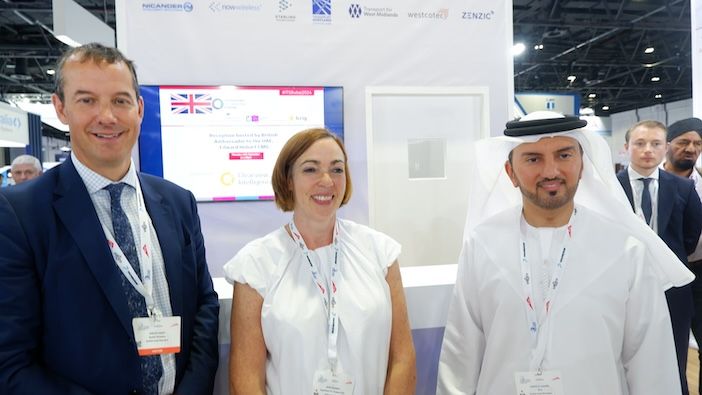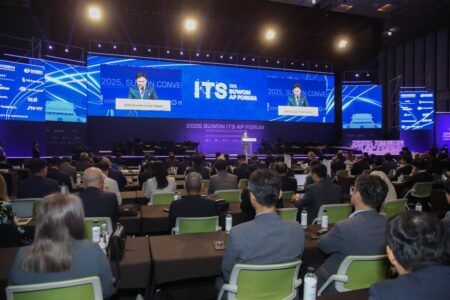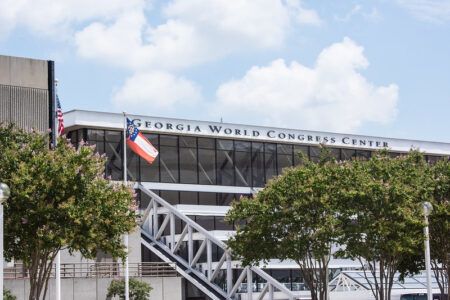The British ambassador to the UAE, Edward Hobart, attended the ITS World Congress and met with Emirati Road Transport Authority (RTA) heads at the UK Pavilion, including its director of transportation systems, Khaled Al Awadhi (pictured).
Mr Hobart was joined by the UK Department for Transport’s Chief Scientific Advisor Professor Sarah Sharples, and also met with His Excellency Mattar Al Tayer, director general and chairman of the Board of Executive Directors of the Roads and Transport Authority (RTA).
“The UAE is only a 52-year old country, and as it became a country, and as it grew, British people, along with many other nationalities, but the UK in particular, was a big part,” said Hobart. “That was partly about the old companies that came here originally, but also about infrastructure companies who helped develop the infrastructure here, helped design the airports, design the roads, designed the port and and built them.”
Professor Sharples was also positive and enthusiastic about continued technological cooperation between the two nations. “One of the things that is really important is enabling UK Innovators to be able to showcase their work for an international audience, and to have the British ambassador’s support in that mission is absolutely brilliant,” she said.
She explained how international cooperation between the UK and UAE allows each region to play to its strengths and furthers the increase of overall technological development.

“We know in the DfT that we can’t solve all of the problems of our transport system alone. We have to work in partnership,” said Sharples. “We’ve got some brilliant solutions emerging from the UK, but very often the way to make things work is by matching best with best. We’re thinking how we can partner with other spaces, with other organisations.”
Sharples also said that she considered the UAE an important proving ground for traffic management technology and praised its ability to quickly implement new innovations. “The UAE provides an especial opportunity because the particular ecosystem here really allows rapid deployment of technology,” she said. “We get to learn how that technology works here. We can take that learning back to the UK and think about how it applies to our transport systems there.”
The DfT, and Britain, now look forward to a future of collaboration with the international ITS community. “We’re excited about events like the ITS World Congress we’ll be hosting in Birmingham in 2027, a fantastic opportunity to further those partnerships,” said Sharples.





